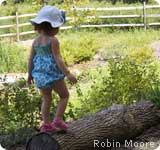
Image: ajourneyschool.com
Educational professional Christa Niven serves as the CEO of Journey School in Lynwood, Washington, and Journey School of Dripping Springs in Dripping Springs, Texas. Also the founder, Christa Niven established the schools to provide innovative education to early learners, and she continues to drive curriculum development for her students.
Journey School programming offers a unique educational experience to young people. It borrows from the Reggio Emilia model of education, offering an environment in which children become the masters of their own learning. Even at very young ages, children at Journey School are considered to be capable of discovery and applying meaning to their experiences. Accordingly, the school offers ample opportunities for self-discovery and artistic expression.
Students at Journey School participate in yoga, which helps their physical well-being while encouraging stress management and mindfulness. Their studies are rich in the performing arts, thanks to lessons in dance and dramatic play. Musical fun and learning also make up part of the Journey School experience.



You must be logged in to post a comment.